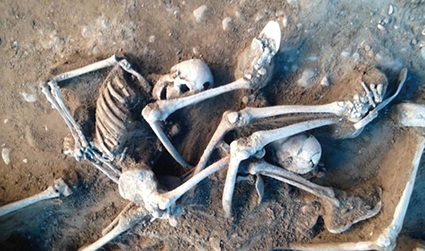SovLab Calls for Autopsy of 150 Corpses Found in Batumi
The Soviet Past Research Laboratory (SovLab) has addressed the state authorities and representatives of the Batumi Eparchy to conduct an anthropological-criminal investigation and comprehensive autopsy of 150 corpses found on the territory of the military base in Georgia’s Black Sea coastal city Batumi.
The organization, which aims to make a proper analysis and exploration of the Soviet totalitarian past, has given three recommendations to the State and the Church:
1. Provide public access to materials that will allow researchers to use this information.
2. If anthropological and criminal examination and research are not being conducted, expert groups should be able to study the remains.
3. If these are the remains of victims of the Soviet period, the State should give this fact a legal framework - to initiate an investigation in a prescribed manner and to ensure that the process is documented.
Otherwise, the Soviet Past Research Laboratory believes that it is unreasonable and premature to claim these corpses are of the victims of the 1937-1938 Soviet terror.
Information about the discovery of a mass grave was released on April 5 on the official website of the Batumi and Lazeti Eparchy.
The remains of 150 people were found in the grave. Killed, it is assumed, during Stalin's repressions, but there are also other opinions circulating. The State has yet to release an official statement as to what steps will be taken in this regard.
The graves of victims of Soviet repressions have been found in Batumi since 2014. In 2015, a special commission was created which was tasked to work on this issue but ultimately proved ineffective.
The Batumi and Lazeti Eparchy stated the place where the graves were found was given to the Patriarchate of Georgia for temporary use, adding four graves were found there with a total of 150 human remains.
The clergy have announced that the corpses will be reburied, in the same place they were discovered, on April 21.
It is unknown whether the reburial ceremony will be a religious or civil one, as the remains have not been identified.
The Eparchy claims that the excavation process started openly in 2016 and the state agencies were actively involved in it.
The statement reads that with the cooperation of the Ministry of Health a base of DNA of the remains will be created and an examination of the corpses can be done at any time.
By Thea Morrison
Image source: Batumelebi












